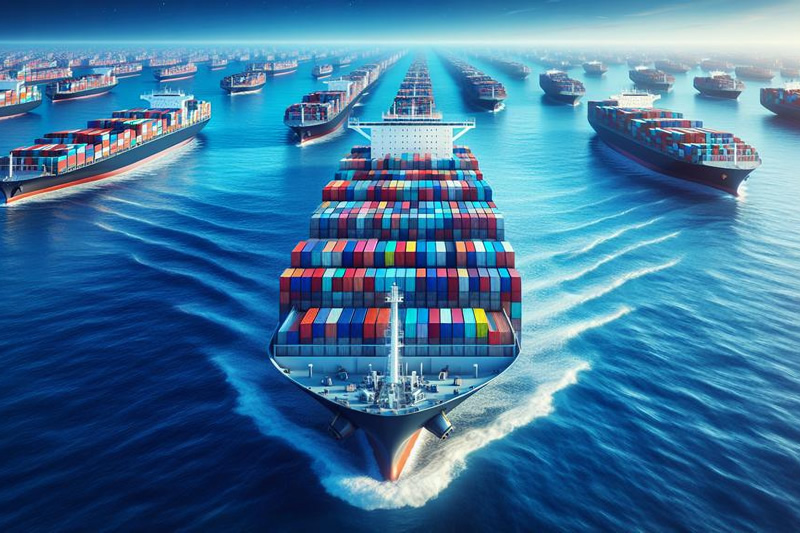FuelEU Maritime Regulation In Force For 2025
25
The FuelEU Maritime Regulation (Regulation (EU) 2023/1805), introduced as part of the European Commission’s Fit for 55 legislative package, represents a transformative step toward decarbonising the maritime sector. Fully effective from January 1, 2025, the regulation incentivises the adoption of renewable, low-carbon fuels and clean energy technologies, setting ambitious targets for the shipping industry's greenhouse gas (GHG) reductions.

Key Highlights of the FuelEU Maritime Regulation:
- Greenhouse Gas Intensity Reduction Targets
- Applicable to ships over 5,000 gross tons calling at EU ports, regardless of their flag.
- Requires a 2% reduction in GHG intensity of marine fuels starting in 2025, scaling up to an 80% reduction by 2050.
- Covers CO2, methane, and nitrous oxide emissions over the full lifecycle of fuels, using a Well-to-Wake (WtW) analysis.
- Shore Power for Zero-Emission Operations
- From January 1, 2030, passenger and container ships at berth in ports specified under the Alternative Fuels Infrastructure Regulation (AFIR) must use on-shore power supply (OPS) or equivalent zero-emission technologies.
- By 2035, this requirement extends to all EU ports with OPS capabilities, although Member States may implement the rule earlier.
- Technology-Neutral and Flexible Compliance
- Adopts a goal-based approach, allowing operators to choose fuels and technologies that best suit their needs, including biofuels, LNG, methanol, ammonia, and hydrogen.
- Includes mechanisms to support existing fleets in achieving compliance and rewards early adopters of sustainable solutions.
Broader Context and Industry Impact:
With shipping contributing roughly 3% of global emissions, this regulation is integral to achieving the EU’s Fit for 55 initiative, targeting a 55% emissions reduction by 2030. The phased approach is designed to encourage innovation and align with the sector’s operational realities, while ensuring that GHG reductions are met progressively.
Challenges Ahead:
While the regulation provides flexibility, significant hurdles remain:
- High Costs: Transitioning to low- and zero-emission fuels requires substantial investment in technology and infrastructure.
- Fuel Availability: Developing and scaling up sustainable fuel production to meet demand is a critical concern.
Despite these challenges, the FuelEU Maritime Regulation is a bold step forward, positioning the EU as a leader in maritime decarbonisation and fostering global advancements in sustainable shipping practices.
#Protea #Emissions #Monitoring #CEMS #FTIR #Gas #Analysers #Shipping #Marine #Carbon #Capture
Other Articles
Carbon Capture Utilisation & Storage (CCUS) In 2026
16
Global Underground CO2 Storage Data Offers Hope Amid Rising Emissions
01
IMO Postpones Adoption Of Global Net-Zero Shipping Framework
04
Pioneering Carbon Capture Projects Ready For Construction
03
Methanol & Ammonia Deemed Ready As Zero-Emission Shipping Fuels
01
Carbon Capture Storage Reaching A Turning Point In Decarbonisation
13
CCS To Capture 15% Of Shipboard Carbon Emissions By 2050
29
Global Shipping Industry Struggles To Navigate Net Zero Transition
21
Carbon Capture Surges as Economics Policy & Industry Demand Align
14
GHG Emissions At Ports On The Rise Despite Initiatives
07
